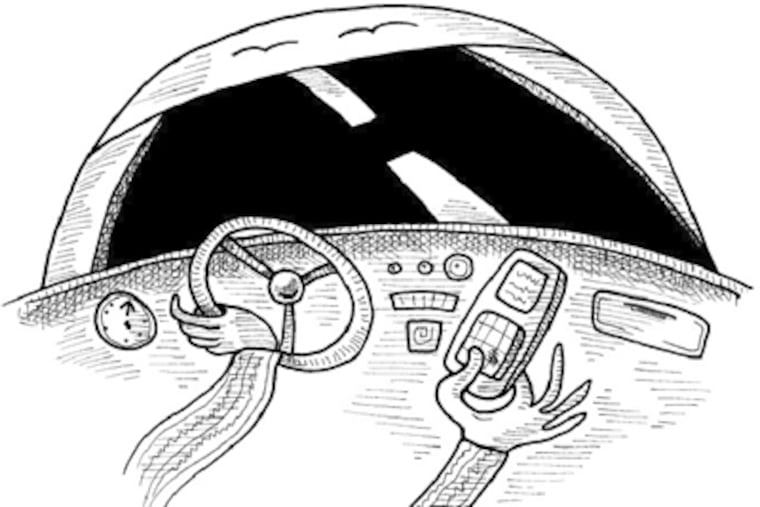
With its recommendation that all states should ban drivers' use of cell phones, including hands-free devices, the National Transportation Safety Board has established the gold standard for highway safety in the digital age.
It's a move that no state has yet made, and perhaps it won't be seen as a realistic approach for years - even though some European nations long ago banned all calls by drivers.
There's certainly no longer any doubt that the statistical evidence backs up the NTSB's landmark ruling. And there's the stark fact that 3,000 lives are lost annually in highway crashes caused by distracted driving.
Safety experts have known for years that talking on a cellphone is akin to driving drunk, often with predictable results. Drivers' risk of a serious accident increases fourfold when the call goes through, and experts say a hands-free device doesn't reduce the distraction of holding a phone conversation.
While the experts are convinced of the risks, clearly, vast numbers of the driving public are not. Surveys show that more than half of drivers talk on their phones, while one in five dangerously sends text messages from behind the wheel.
That shows the need for greater public-awareness programs about the dangers of these distractions, and the NTSB's latest safety advice should be a powerful tool.
At least with texting, most motorists grasp that it's risky to take their eyes off the road to look at a handheld device. The consequences have proven deadly on many occasions, including a chain-reaction crash in 2010 in Missouri in which a teen driver was texting repeatedly before triggering the fatal pileup. It was its review of that crash that prompted the NTSB last week to issue its recommendation.
As for using a phone, the bans on handheld devices in place in about 30 states, including New Jersey, represent a good first step. The best rationale for such a ban is that it sends a message that cellphone use is dangerous and, with the hands-free mandate, drivers can have both hands on the wheel.
At one point, technology like hands-free devices was viewed as the answer to distracted driving. Too bad such devices now are making it easier and easier to keep making calls - thanks to automakers' adding them along with other dashboard bells and whistles. Yet, there's no reason those same devices couldn't be engineered to block calls while vehicles were moving.
Neither Detroit nor the cellphone industry backs a total ban on cellphone use by drivers, instead urging motorists to avoid risks. But the NTSB recommendation puts everyone on notice as to the safest policy. That should move the nation closer to the day when most drivers realize they have to put down their phones.